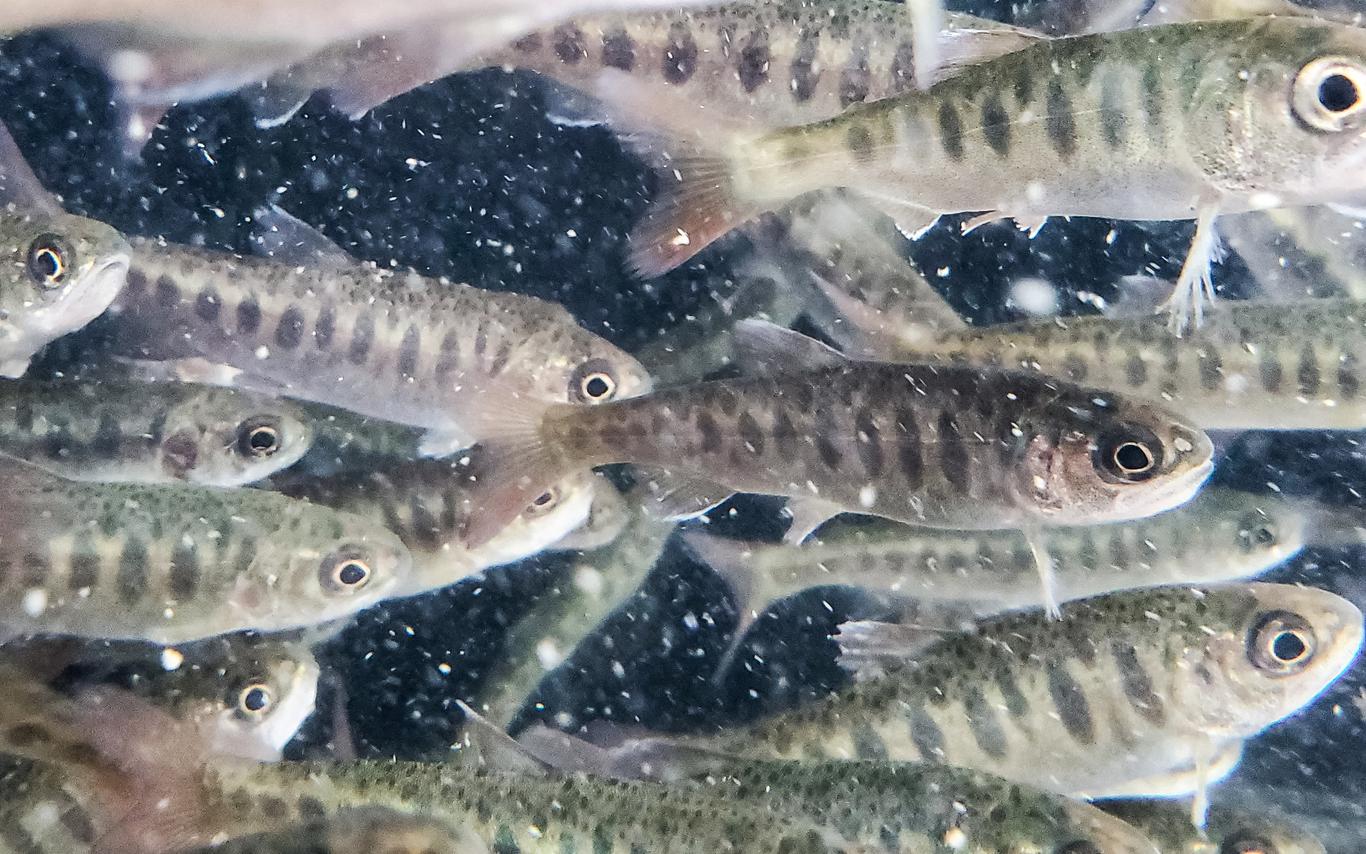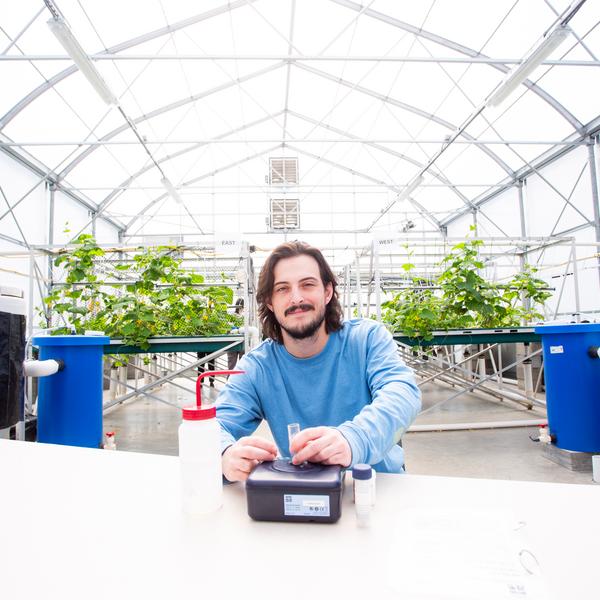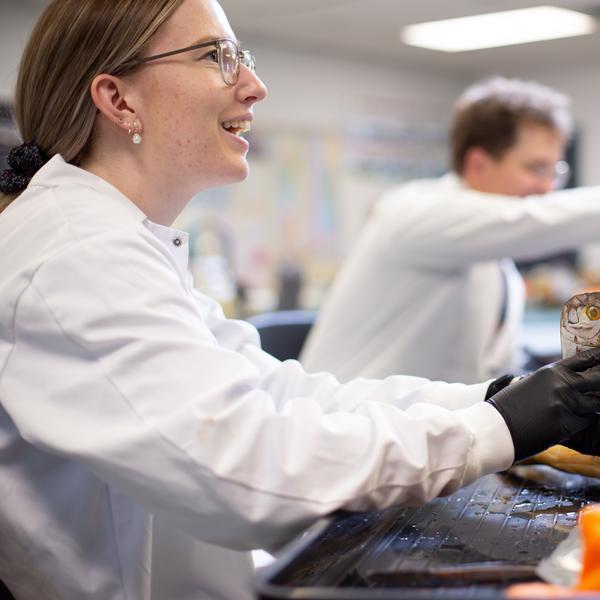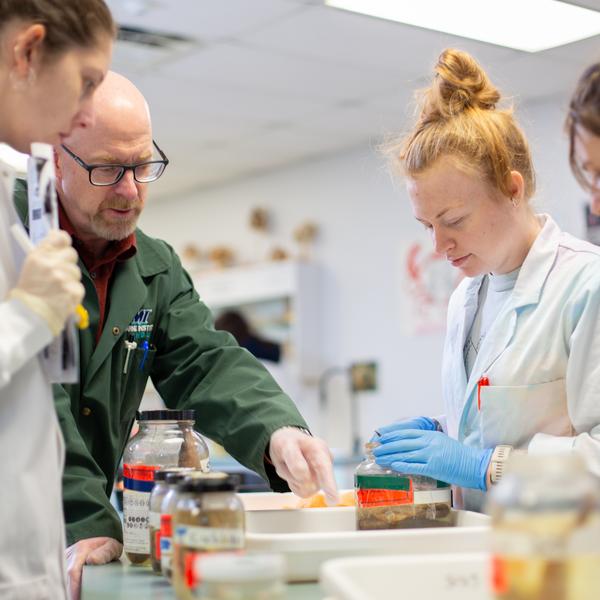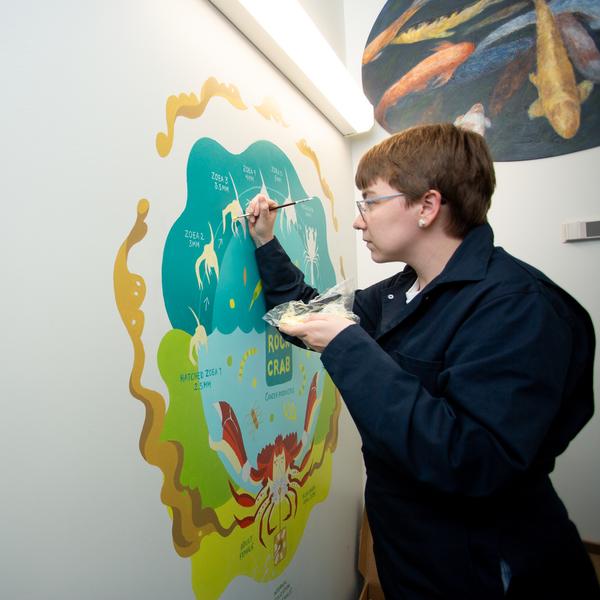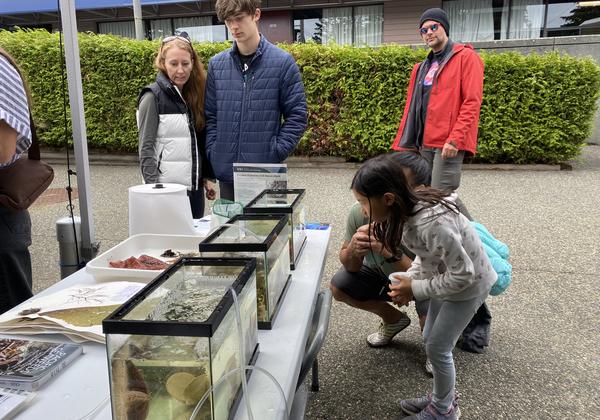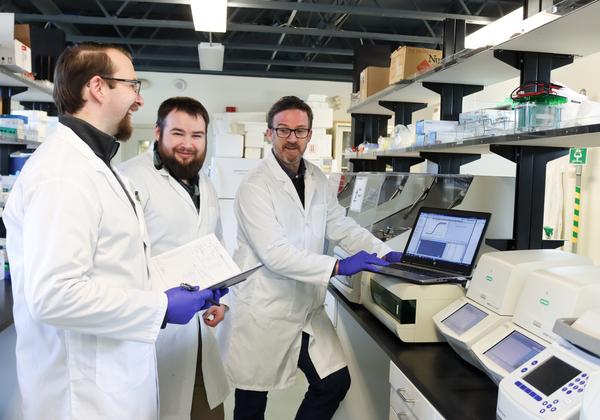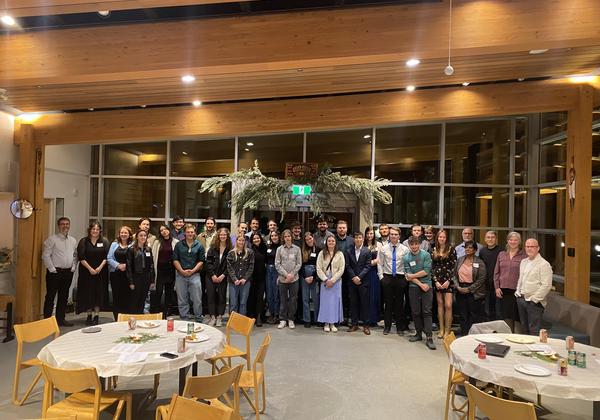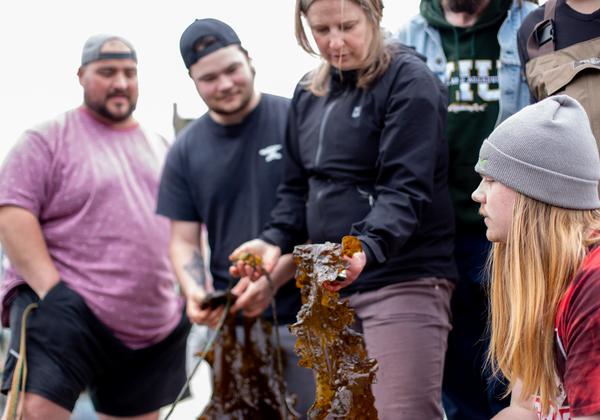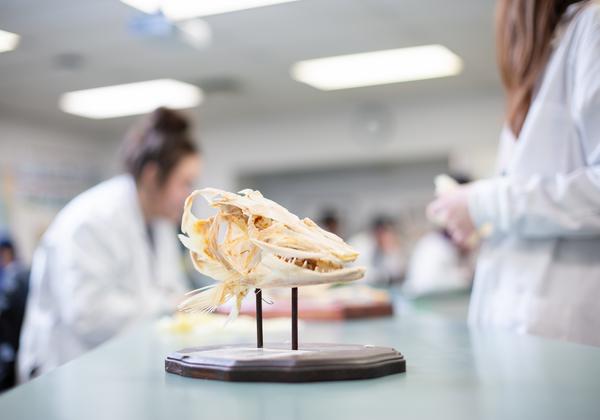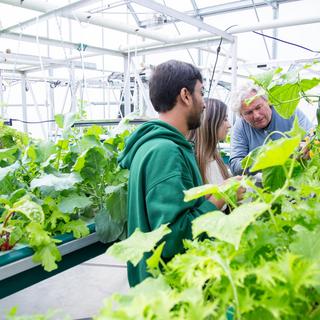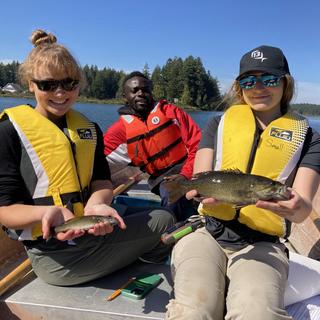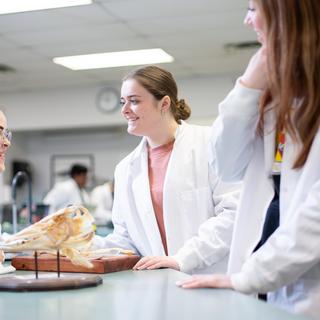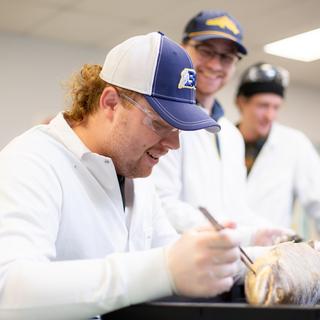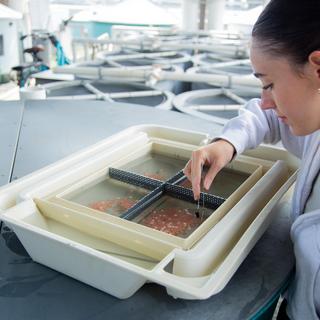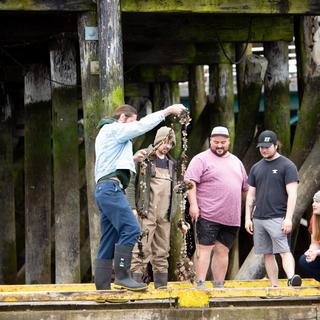There's never been a better time to study fisheries and aquaculture. Fisheries and aquaculture provides food for billions of people. It's a key agricultural food sector in Canada. It plays an important role in the local economy, food security, cultural life of local communities and First Nations. Ecosystems that support productive fisheries and aquaculture are under increasing pressure from urbanization, habitat destruction, pollution, illegal fishing, disease, invasive species, and climate change impacts.

Prepare for tomorrow's opportunities and challenges
The Fisheries and Aquaculture programs provide dynamic education and skills training, between classrooms, labs, fieldwork and practical real-world work experience. Our dedicated instructors share a wealth of multi-disciplinary, theoretical and practical knowledge and experience. Our programs prepare you for tomorrow's opportunities and challenges in an industry that can open doors to rewarding work opportunities and careers in this field.
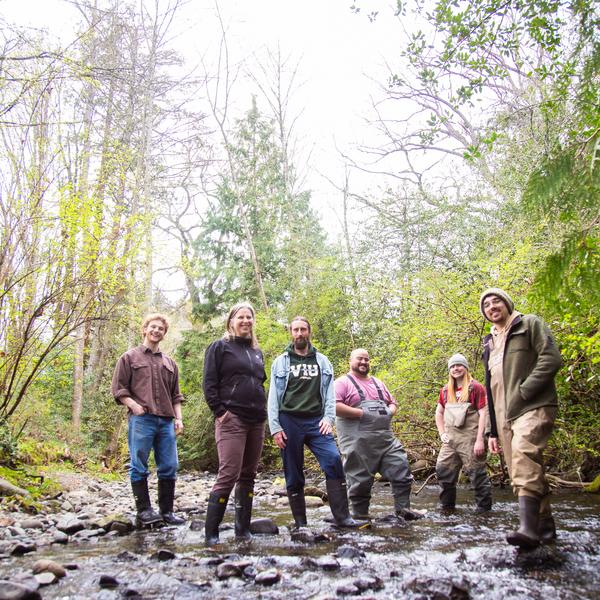
Our programs reflect and deeply connect with our coastal island setting
Fish and Aqua at VIU is well-positioned to address pressing issues for our coastal communities. Our programs provide essential knowledge and skills in biology, ecology, freshwater aquatic, and marine sciences related to sustainable aquatic food production for marine, freshwater, and land-based systems. Learn about environmental challenges, sustainable solutions, and stewardship of this extraordinary place and community.

Be job and career ready
Gain real-world, hands-on experience
We provide academic and applied skills training with practical hands-on laboratory and field experience. This educational combination is essential for success across several exciting careers found in the fisheries and aquaculture industry, including aquaculture biotechnology, fisheries management, resource or coastal management and conservation, and marine biology. Our dedicated faculty will expose you to a variety of areas of expertise, including:
- fish, invertebrate, and micro- or macroalgae culture methods;
- fish habitat and stock assessment techniques;
- animal (fish, invertebrate) biology and health sciences;
- fisheries enhancement;
- aquatic, limnological, and ocean sciences
- species and habitat conservation and management.
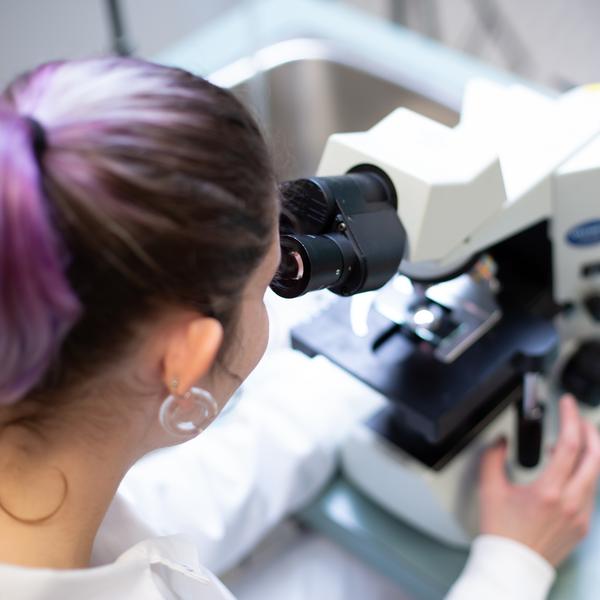
Our programs equip you with the confidence to take on meaningful roles locally, regionally, and worldwide
Graduates of our programs find success in many industries. Ninety-five percent of graduates are hired into related jobs within a month of graduation. A fisheries and aquaculture diploma or degree can open doors to a variety of employers and employment opportunities including roles in:
- Government (provincial or federal);
- Commercial aquaculture;
- Enhancement and hatcheries;
- Fisheries consulting
- Marine biology consulting;
- Non-profit conservation groups;
- Entrepreneurship;
- Professional development; and
- Further education and graduate studies.

We are place-based and community focused
Connecting you with the local community through work-integrated learning
Engagement in active academic research, local industry, as well as, volunteering for VIU and public outreach is strongly encouraged. There are opportunities to make local, regional, and global community connections. Small classrooms, access to unique integrated facilities, such as our tank farms, aquaponics greenhouse, Centre for Shellfish Research, and the Deep Bay Marine Field Station, will provide you with a unique learning experience in Fisheries and Aquaculture at VIU.
The Fisheries and Aquaculture Department engages with the local community through participation in local outreach events. We also host an annual Donor Appreciation Event to thank awards and scholarship recipients and donors.
Our Programs
Diploma in Fisheries and Aquaculture Technology
If you are new to post-secondary studies, then the two-year Diploma in Fish and Aqua Technology provides background academic theory as well as extensive training in industry standards.
Post-Degree Diploma in Fisheries and Aquaculture
If you have already completed a degree, the one-year Post-Degree Diploma in Fish and Aqua provides practical skills training and a credential that is specific to fisheries and aquaculture-related fields.
Our Programs
Bachelor of Science (BSc) Minor in Aquaculture
If you are already enrolled or intend to enroll in a bachelor program at VIU, and desire a degree focused on fisheries and aquaculture, then consider the BSc Minor in Aquaculture.
Bachelor of Arts (BA) Minor in Aquaculture
If you are already enrolled or intend to enroll in a bachelor program at VIU, and desire a degree focused on fisheries and aquaculture, then consider the BA Minor in Aquaculture.

Five reasons to study with us!
- Improve your knowledge of aquatic biology, ecosystems, issues and conservation.
- Participate in hands-on learning with dedicated faculty and small classes.
- Gain confidence and professional skills, and learn teamwork.
- Be career-ready for one of the fastest growing industries.
- Make positive community impacts through participation, problem solving and sustainable solutions.
Student Stories: Hooked on salmon
Second-year diploma student Tristan Dieleman, under Professor Duane Barker, participated in a chum and coho salmon counting assessment on the Chase River in south Nanaimo that yielded amazing results of record-breaking returns.
“As I’ve gone through the program and learned what I’ve learned, I’ve realized what I don’t know is even greater; you realize you don’t know 10 other things,” he explains. “One thing for certain is regardless of where I end up, I’m going to enjoy it. Because I’ve enjoyed the entirety of the program since I have been here. Every course has information relevant to what I enjoy in life and my passion. As long as there are fish, that is where I will be.”
Read more about Tristan's work in the VIU blog. See more stories in the News and Events.
Student Stories: Helping to protect cutthroat trout
Fish and Aqua student Joe Clark is working with the Nanaimo & Area Land Trust (NALT) to monitor urban streams in Nanaimo for the presence of cutthroat trout.
“The Fisheries and Aquaculture diploma was excellent in terms of giving me the hands-on skills I needed to understand fish habitat, fish behaviour and ecology. There is a large field component to the program, which was great because we got to get out and look at fish habitat and evaluate urban streams,” says Joe. “The faculty in fisheries and aquaculture instilled a lot of confidence in me. I feel like I left with the skills to do this kind of work. I couldn’t just pick one professor over another, they were always very encouraging and helpful. They did a good job preparing me for this kind of work.”
Read more in the VIU Blog. See more in the News and Events.

What students have to say
"This program gave me a very solid foundation for working in this field. Most of the classes have some kind of hands-on component". -Allison Unger, Class of 2024
